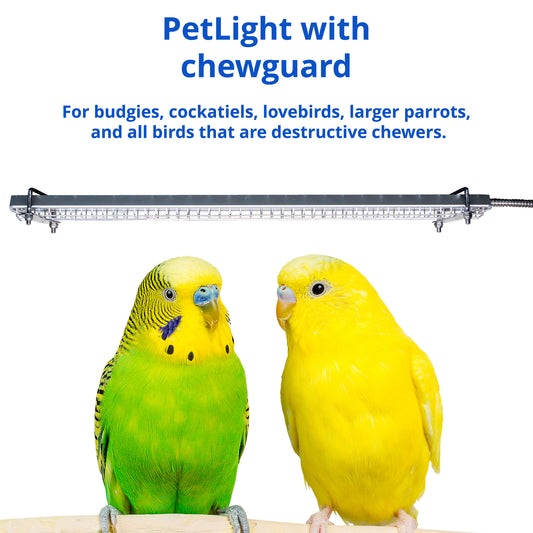Should You Turn Off Your Bird’s Light at Night?
Share

In the wild, birds follow the natural rise and fall of the sun — waking at dawn and resting at dusk. Indoors, it’s your job to create a similar rhythm. That includes turning off artificial lights at night to support healthy routines and reduce stress. But how dark should it be? Is total darkness necessary, or can a soft glow stay on?
Birds Thrive on Routine
Birds are creatures of habit. They rely on consistent light cues to regulate their activity, feeding, and rest cycles. Just as birds need 10–12 hours of daylight, they also need a period of darkness to unwind and sleep properly.
Leaving lights on at night can disrupt this natural rhythm. Constant brightness may lead to:
Restlessness or difficulty settling
Interrupted sleep patterns
Confusion around when to eat or be active
Again, these are not medical claims — just commonly observed behaviors from bird owners.
Total Darkness vs. Night Light
While most birds benefit from darkness at night, some may feel more secure with a soft, indirect light — especially if they’re in a new environment or prone to night frights.
Tips for a Restful Night Setup:
Use a timer: Automatically turn off lights after 10–12 hours to maintain consistency.
Avoid sudden darkness: Gradually dim the lights with a timer accessory or dimmable bulb.
Consider ambient lighting: A dim hallway or small light in the room (away from the cage) may be enough for birds that don’t like complete darkness.
No flickering or harsh LEDs: Even low lights should be flicker-free and gentle on sensitive bird eyes.
HappyBird Lighting = Day/Night Harmony
HappyBird lights are built to support your bird’s natural rhythm. They can be easily connected to automatic timers that manage light cycles without the need for daily adjustment.
Unlike many household lights, HappyBird avoids UVB and flickering, making it safe and calming — both during the day and as part of your bird’s wind-down routine at night.
Conclusion
Yes, your bird’s light should be turned off at night — but it’s all about balance. A gentle transition into darkness helps your bird settle down, feel safe, and maintain a stable daily rhythm. With the right lighting routine, you’re not just mimicking the sun — you’re creating comfort.



